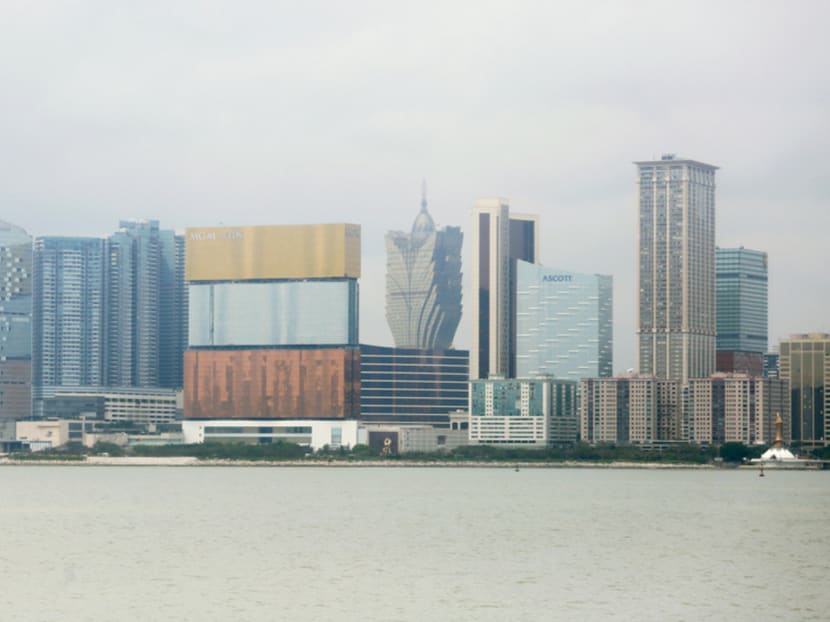Theft jeopardises junket model in Macau casinos
MACAU — For years, shadowy middlemen known as junket operators fuelled the growth of the world’s biggest gambling centre, navigating legal restrictions and generating billions of dollars for United States casino tycoons Sheldon Adelson and Steve Wynn, and their Chinese counterparts.

Gambling promoters in Macau are facing a big challenge to restore the faith of their already-worried investors after millions of dollars were stolen. Photo: Reuters
MACAU — For years, shadowy middlemen known as junket operators fuelled the growth of the world’s biggest gambling centre, navigating legal restrictions and generating billions of dollars for United States casino tycoons Sheldon Adelson and Steve Wynn, and their Chinese counterparts.
But gambling promoters in Macau now face their biggest challenge after the theft of millions of dollars from Dore Entertainment, a casino promoter. The theft shook investor confidence and prompted street protests at a time when the corruption crackdown and economic slowdown in China were already hitting the territory hard.
Now, the government of the former Portuguese colony, and the only part of China where casinos are legal, is considering tougher regulations and investors have been pulling their money out of junkets as the operators warn of hard times ahead.
“You’ve got junket investors who have been a little worried about their investments for a while because they’re watching the market implode,” said Mr Grant Govertsen, an analyst at Union Gaming Research in Macau.
“Then along comes the Dore situation with the alleged theft and it’s giving junket investors one more reason to say, ‘I’m out’.”
Hong Kong-listed Neptune, one of the biggest junket operators, warned that it could withdraw from the business because it faces “pressing concerns”, scrambling to reduce mounting losses at a time when its financial position is “extremely vulnerable”.
It said that “deepening economic fears about China”, which have caused a global stock market sell-off, were “forcing a broad rethinking of our business strategy”.
Other junket operators have started looking away from Macau, launching casino projects from Vanuatu to the Cape Verde Islands.
Macau’s casinos expanded at a dizzying pace in the decade before Chinese President Xi Jinping launched his fight against graft in 2013.
The junkets played a vital role in helping gaming revenue hit a peak of US$45 billion (S$64 billion) that year, most of it generated from high-rollers playing in luxurious private rooms.
While casinos in other jurisdictions typically market and extend credit to these VIP gamblers themselves, this is not possible in China because of currency controls, a ban on the promotion of betting and the fact that the collection of gambling debts is not legally enforceable. The junkets, run by listed companies, celebrities and individuals with underworld connections, overcome restrictions, bringing in as much as 85 per cent of the VIP business that accounts for more than half of gaming revenue.
“They exist in a grey zone bounded by risk-based and hands-off Macau government regulation on the one end and questionable or illegal business methods on the other,” Gambling Compliance, a London business that advises betting companies on regulation, concluded in a report last year. “Junkets defy the spirit of Chinese and Macau government financial restrictions by running a de facto cash transfer and/or lending service.”
To raise the vast amounts of cash they need to fund China’s high-rollers, the junket operators have looked to private investors, as well as gamblers themselves, offering monthly interest rates of 1 to 2 per cent.
But the Dore incident, which involved a cage manager allegedly stealing millions of dollars, has raised questions about the sustainability of the industry model.
“We don’t know if or how quickly we’ll reach that tipping point where liquidity is a bigger problem than demand,” said Mr Govertsen.
“But liquidity represents a real risk to a further decline in the VIP business over the coming months.”
Mr Kai Tan, an analyst at Macquarie Securities in Hong Kong, believes the bigger problem facing the casino industry in Macau is still dropping demand as business owners facing declining profits and falling asset prices shun the baccarat tables.
Gaming revenue fell by an annualised 33 per cent to US$2.1 billion in September, the 16th straight month of shrinkage.
“We are still negative on Macau, but the main reason is because of the slowing Chinese economy and we don’t see a recovery yet,” said Mr Tan.
Analysts can only guess at the real extent of the liquidity pressures facing the junket operators because of their complex and opaque ownership structure and a lack of publicly available data. But no one doubts that the heat is on as Beijing continues its anti-corruption drive.
“The junkets are going to be under increasing pressure,” said Mr Jeffrey Fiedler of the International Union of Operating Engineers, a US trade union that watches the Macau casino industry closely because of the extensive involvement of US companies such as Las Vegas Sands, Wynn and MGM Resorts. “I don’t think the mainland cares as much about the gaming industry in Macau as it does about the survivability of the Communist Party and the relationship of corruption to that survivability. So the mainland is being pretty tough and I have every expectation that they will continue to be.” FINANCIAL TIMES






